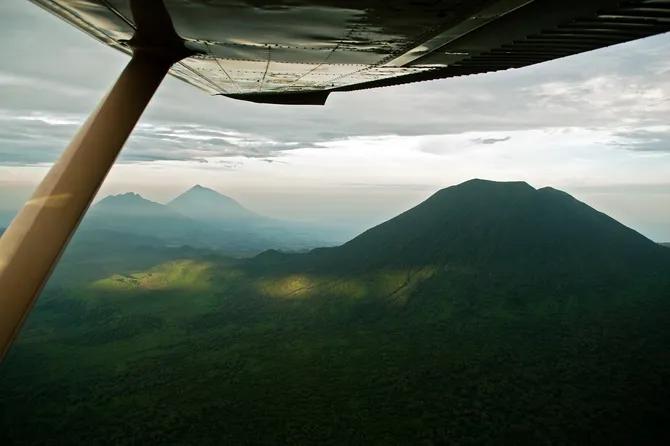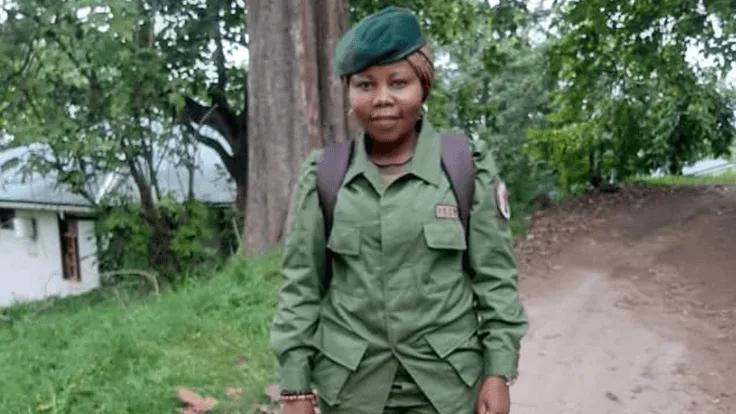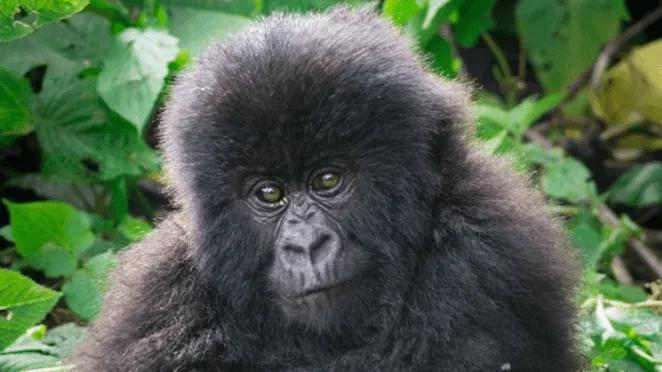
Projects funded by FID
16 février 2026
Impact
News and Insights
18 March 2024
Projects funded by FID
Democratic Republic of Congo


FID is funding an evaluation to gain greater insights into how the take-up of electric cookers in the Democratic Republic of Congo's city of Goma could lessen the consumption of smuggled charcoal, which endangers the Virunga National Park's forests. Early findings from this assessment, released by the research team, point to household interest in this cooking option.
Over a decade, Ruth Kavugho Tsongo has traversed Virunga Park as a guard with the singular mission of accompanying tourists to meet the gorillas sheltered in the forest next to the mountains. This treacherous two- to three-hour expedition through one of Africa's richest biodiversity hotspots is also a battleground for armed groups.
During her ten years of active service, Ruth has watched the tree population dwindle in some parts of the park, "particularly near Goma in North Kivu, an area that has attracted vast swathes of displaced people fleeing from armed conflict," she noted.

One reason for this deforestation is cooking with charcoal, commonly called "makala" in Lingala. A fuel made from trees felled in the forest, it is the main source of energy for 90% of Eastern Congo's inhabitants. This lucrative trade has turned into illegal trafficking. "In the DRC, charcoal is a full-blown industry driven by armed groups," explains Emmanuel de Merode, Director of Virunga National Park.
Felling trees is prohibited in Virunga National Park, home to scores of animal species, some of which are threatened with extinction. "The park relies on 750 park rangers who cover roughly 60,000 km yearly to conserve this unique habitat. Each year, 3,500 bags of charcoal are confiscated," reckons Sébastien Desbureaux, researcher at the Environmental Economics Centre - Montpellier (CEE-M).
In order to protect this natural habitat, Virunga Park is also banking on the construction of "run-of-river" hydropower plants to supply electricity to residents. Nowadays, this power is readily available to more than 27,000 households (170,000 inhabitants), offering an alternative to charcoal cooking. "The people eat plenty of grilled meat and it's not possible to make it using gas, but electricity could be a solution," says Ruth.
Leveraging this new energy source, a research team headed by the Environmental Economics Center of Montpellier (CEE-M, INRAE), Virunga Foundation and the University of Antwerp kicked off a project in 2019 designed to substitute biomass use for an electric self-cooker. This involves equipping families with an electric self-cooker, fully subsidized by Virunga Energies, a socially responsible supplier of hydroelectric power. Virunga Energies is 100%-owned by Virunga Foundation, which manages the national park with the Congo Institute for Nature Conservation. The goal is to inspire families to promote this novel cooking method as a means of curbing wood consumption. Meanwhile, the associated increased electricity costs could ultimately yield a positive return on investment for the company.
By virtue of its potential impact and groundbreaking profile, the project received FID funding in 2022 to test different ways of supporting the uptake of self-cookers, through subsidized equipment, electricity and activities to raise awareness of environmental imperatives. This financial support also serves to measure the impact of introducing the proposed new cooking method on charcoal use and demand.
Since then, 1,000 households have received electric cookers, and their members have been invited to cooking demonstrations showcasing how to use these appliances. Six months after the roll-out, a research team led by Sébastien Desbureaux embarked on a survey to find out more about how these cookers were used by a sample of households.

In 2018, Ruth joined the Park monitoring and evaluation team, and is involved in the project. She helped gather data in the field, over a period of six to 12 months. "I have learnt to use collection tools such as Kobo software to capture quantitative data and also to find out more concretely about cooking habits six months after these cookers were introduced to households".
In February 2024, the research team will post the first findings of this test, ahead of a final survey slated for the end of year. "We focused on electricity consumption," explains Sébastien. And one of the initial outcomes has been lower energy bills: "When they use the cooker, households consume less charcoal and save $5.5/month, representing $275 over a five-year period". The team also highlighted the environmental merits, with charcoal use per household down by 30%. Moreover, initial uptake data looks promising: "We found that even households classified as the poorest had embraced this cooking method, and that respondents appreciated the time and money saved," says Sébastien.
While the direct effects of cooking with electricity on health are yet to yield concrete results, the surveys reveal a genuine interest among respondents in the environmental and social challenges facing Virunga Park. "Many families are concerned about the plight of the Park. I hope we'll be able to relieve the social and environmental pressure on the forest," explains Ruth, who is now keen to carry on her activities in scientific research projects, with a single objective in mind: protect the Park's natural resources and habitat for the animals she has lived with for over 20 years.

News
Discover the latest news from FID
Explore FID's news
Projects funded by FID
16 février 2026

Projects funded by FID
28 novembre 2025
Supporting men living with HIV in South Africa through a peer-led intervention

Publications and resources
27 novembre 2025